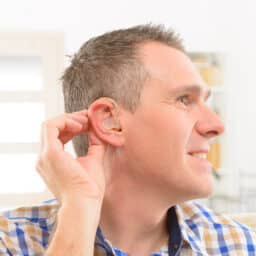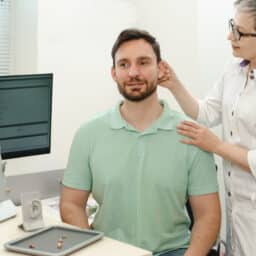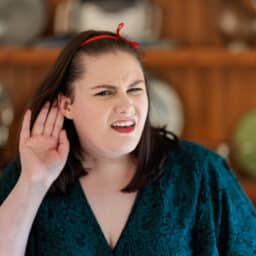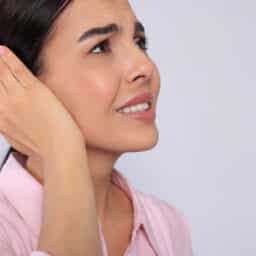Essential Guidelines for New Hearing Aid Users

Entering the world of hearing aids marks a significant step towards improving your auditory experience, yet it also presents challenges for new users. Around 28.8 million adults in the United States alone could benefit from hearing aids. Navigating the common pitfalls that may arise during the new hearing aid adjustment period is crucial to a…
How to Make Friends When You Have Hearing Loss

Staying socially connected is crucial for mental health across all life stages, but establishing new friendships can become more challenging as we age. This challenge is compounded by age-related hearing loss, which affects a significant portion of the adult population. By the numbers, 10% of adults aged 55 to 64 and 22% of those aged…
It’s Time To Spring Into Your Audiology Care Routine

Spring is traditionally a time for cleaning out the old and making way for the new, often focusing on our homes and physical spaces. However, taking the time to care for our health, including our auditory wellness, is equally important. As flowers bloom and the world spins into the next season, it’s the perfect occasion…
What To Know About Misophonia

Most people are familiar with the shoulder-shuddering effect of hearing nails on a chalkboard. For people with misophonia, this skin-crawling sensation can occur from any type of sound. Also referred to as sound sensitivity syndrome, misophonia is characterized by a strong emotional and physical response to specific sounds. While the sound triggers vary from person…
Navigating the Buzz: Understanding When to Get Help for Tinnitus

Navigating the world of tinnitus, characterized by a persistent ringing or buzzing in the ears, can often feel like an invisible and solitary journey due to its internal nature. However, by understanding when to consult an auditory specialist, you can help ensure you get the necessary support to manage this condition. Let’s look at some…
How Do I Protect My Child From Hearing Loss Due To Headphones

It is likely common knowledge that exposure to loud noises over time can be detrimental to hearing, but what about the effects of wearing headphones, especially among adolescents? As more research becomes available, it’s clear that noise-induced hearing loss is common but preventable. As a parent, you can teach your child to protect their hearing…
What To Know About Temporary Threshold Shift

Many people are familiar with the sensation of muffled hearing and a ringing in the ears following a concert, party or loud movie. This muffled hearing phenomenon is a sign of a temporary threshold shift. As the name suggests (TTS), is a temporary shift in your hearing ability that returns to baseline levels over time….
Is Notch Therapy the Right Option for Your Tinnitus?

Experiencing a persistent noise in the ears, such as buzzing, ringing or humming, that you can’t attribute to an external source may leave you with many questions. This internal noise is likely the result of a condition called tinnitus. Tinnitus affects a significant number of people with over 50 million people in the United States…
How Can Hearing Aids Help On Your Next Move?

Hearing aids could be your best ally during your next move. With nearly 28.8 million adults potentially benefiting from their use, these devices have far-reaching impacts beyond simply enhancing hearing abilities. They can significantly improve communication, balance and overall quality of life. Balance and Communication The inner ear is a complex structure with three key…
What to Know About Musician’s Monitors for Hearing Protection?

Musicians are exposed to consistent loud noises as part of their hobby or work. Hearing loss developed from exposure to loud noises is common, impacting 18% of adults aged 18-69 after five years of exposure to loud noises at work. Because of this, musicians are more likely than the rest of the population to experience…